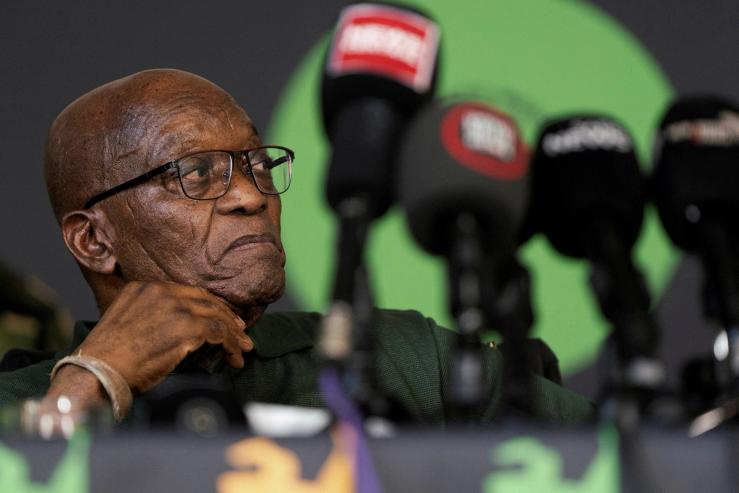The News
JOHANNESBURG — South Africa’s ruling African National Congress has suspended its former president Jacob Zuma following a string of public statements criticizing the party and declaring support for the newly-formed Umkhonto we Sizwe party.
The formation of the party, which uses the name of the defunct former ANC military wing, “is not an accident”, said the ruling party’s secretary-general Fikile Mbalula on Monday.
“It is a deliberate attempt to use the proud history of armed struggle against the apartheid regime to lend credibility to what is a blatantly counter-revolutionary agenda,” he said as he announced Zuma’s suspension following a meeting of the ANC’s most senior leaders.
“Former President Jacob Zuma is actively impugning the integrity of the ANC and campaigning to dislodge the ANC from power, while claiming that he has not terminated his membership,” said Mbalula.
Sam’s view
The ANC is in a sensitive position as it prepares for the toughest election since Nelson Mandela led it to power to end apartheid in 1994. It is damned if it axes him, following the suspension, since he is likely to want the publicity and may want to present himself as a victim. But it will also look like the ANC has no control if it allows him to retain his membership while actively campaigning for another party.
Zuma easily draws sympathy from a nationalistic segment of the populace, including his home base in the KwaZulu-Natal province. The ANC gets about 20% of its votes from KwaZulu-Natal, making the province the biggest supporter of the ANC among South Africa’s nine provinces. The party may be concerned that it’s at risk of losing its majority and control of the provincial government in KwaZulu Natal, which it won with a 54% majority in 2024.
Violent protests erupted when the former president was sentenced to 15 months in prison in 2021 after refusing to testify during a financial corruption investigation. He was freed on medical parole after two months. The protests were a marker that he retains some influence, despite the widespread acceptance that corruption took hold during his tenure.
Instead of ignoring him as a discredited former president, the ANC may be lending a veneer of credibility to Zuma and the new party. It betrays a sense of panic as it risks losing its parliamentary majority — and therefore control of South Africa — for the first time since coming to power in 1994.


